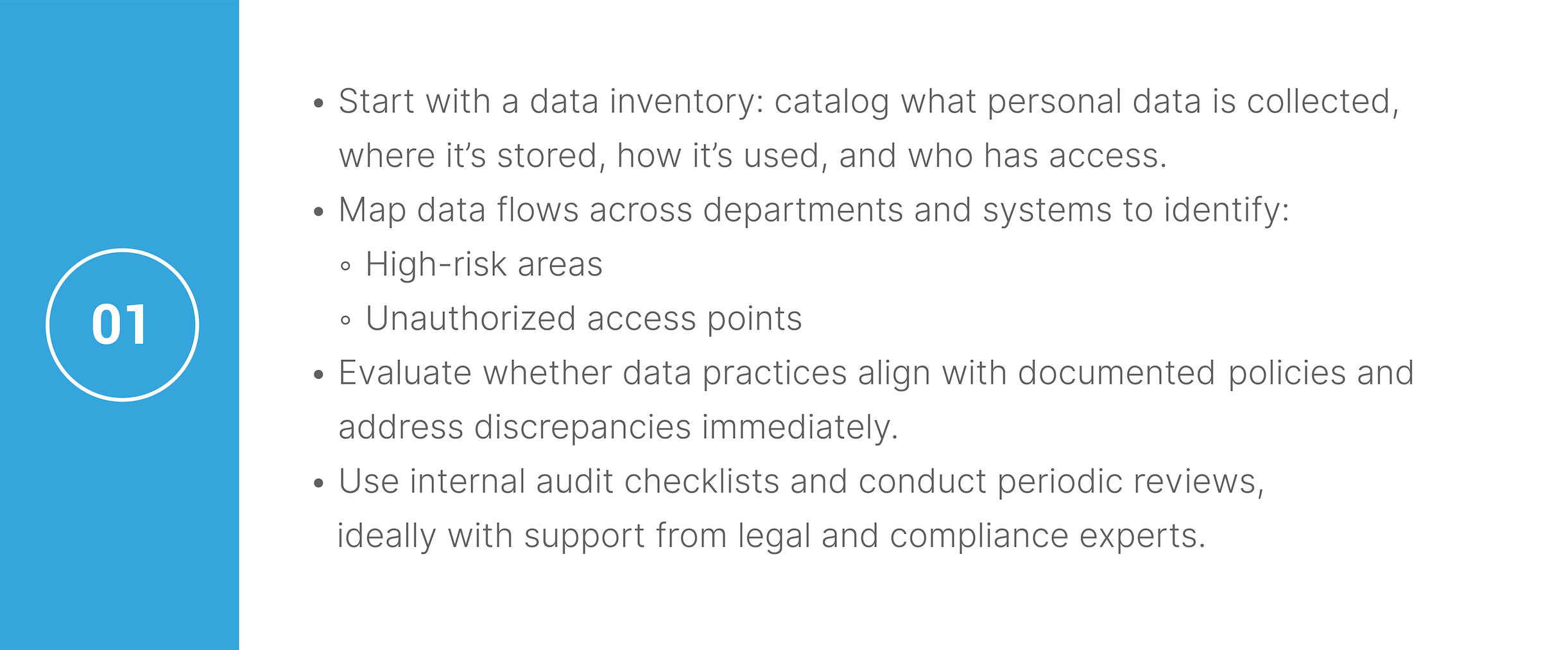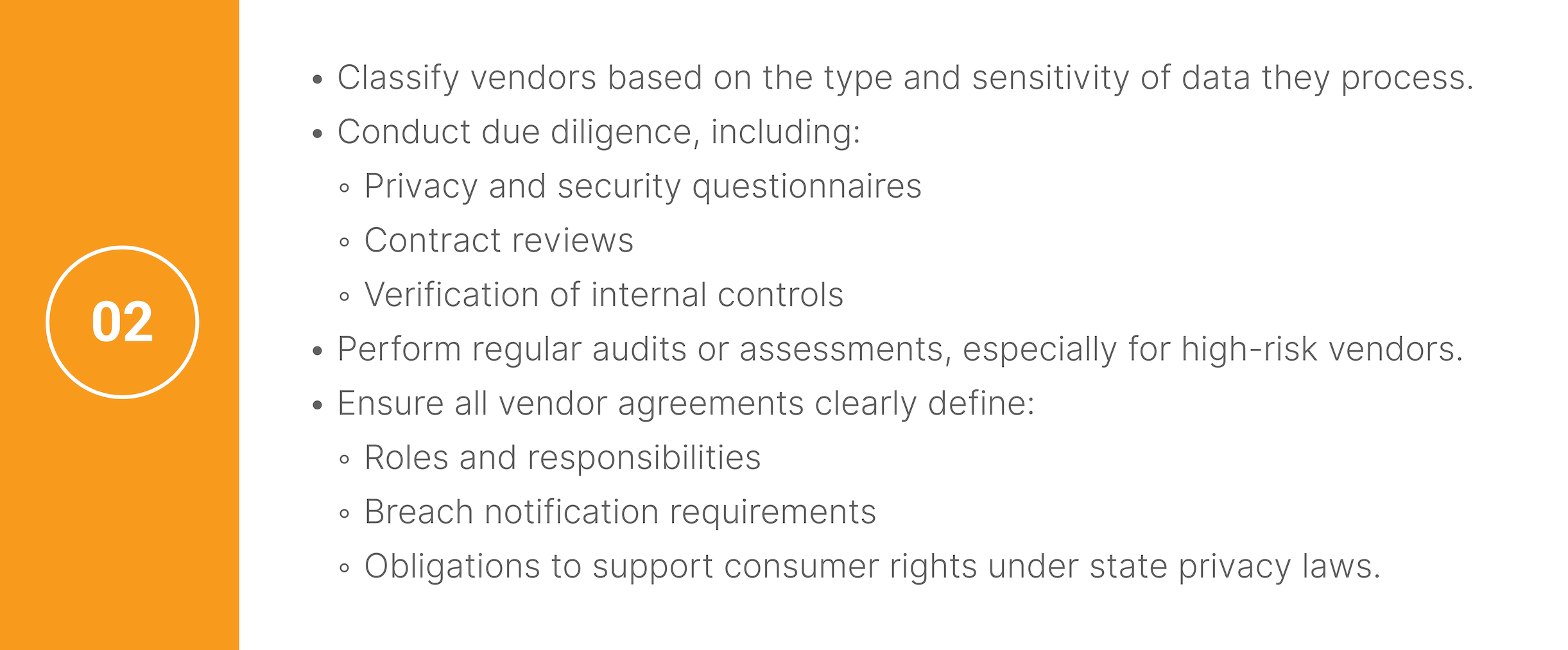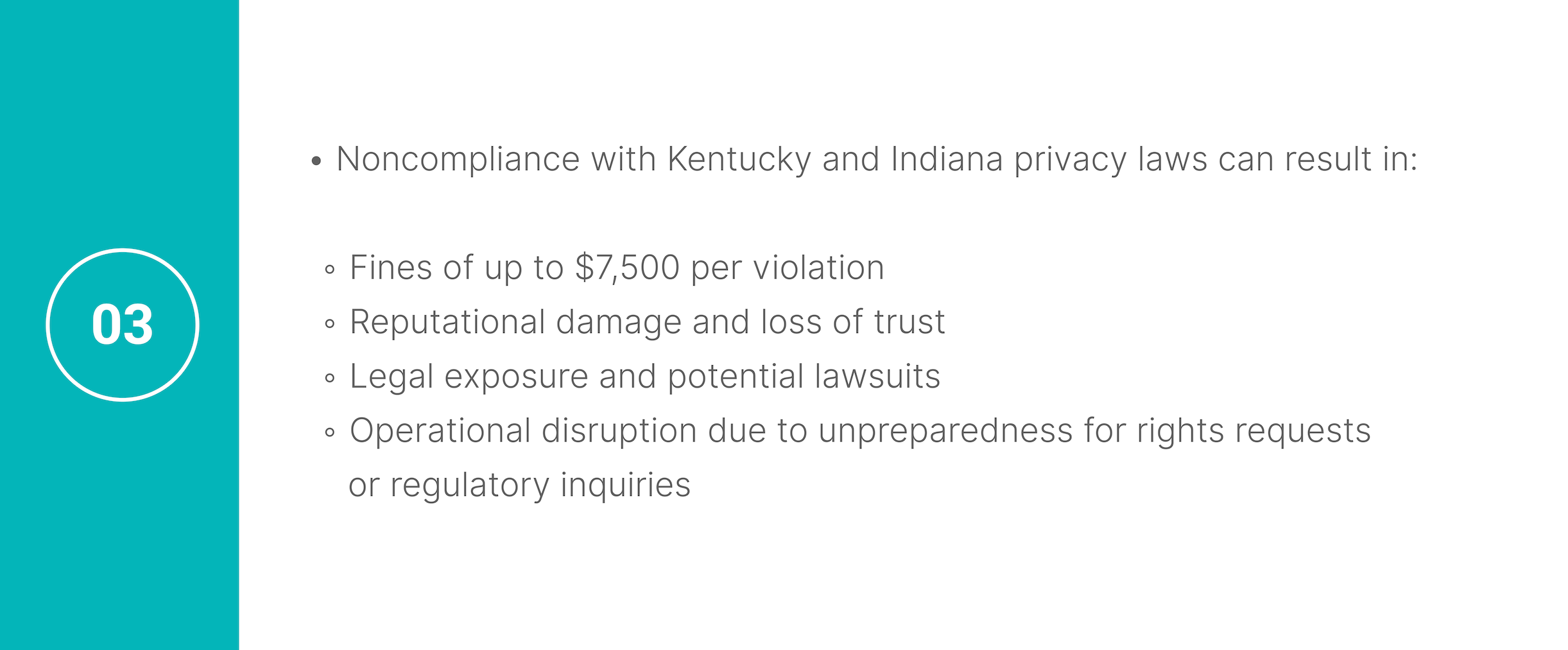
What Organizations Overlook in Privacy Readiness
When it comes to privacy compliance, the biggest risks are often hiding in plain sight. With new consumer privacy laws taking effect in Kentucky and Indiana in 2026, organizations are facing increasing pressure to ensure their data practices aren’t just documented but fully operationalized. These laws go beyond updated privacy policies as they require complete visibility into how your business collects, manages, and protects consumer data.
Common Gaps That Disrupt Privacy Readiness
Even the most principled organizations often overlook crucial components of privacy readiness. Below are some common gaps that can put businesses at risk under Kentucky and Indiana’s new privacy laws:
Incomplete or inaccurate data inventories
Many organizations don’t have a clear view of what personal data they collect, where it’s stored, or how it flows through their systems. This lack of visibility undermines compliance and increases exposure.
Outdated or vague privacy notices
Legacy policies often fail to reflect actual data practices, leading to legal risk and customer distrust.
Unpreparedness for consumer rights requests
Under Kentucky and Indiana law, consumers can request access, deletion, correction, and data portability. Organizations without structured processes may not meet the required response timelines.
Weak third-party oversight
Many organizations neglect the importance of how vendors process or store personal data. Without transparent contracts and risk assessments, you could be responsible for third-party oversights.
Lack of employee training
Strong policies alone aren’t enough. They must be reinforced by staff who understand and apply them. Compliance relies on building a culture of privacy across the organization.
Building Sustainable Readiness into Your Business Culture
True privacy readiness requires a shift from reactive to proactive. Updating a policy and calling it compliant isn’t sufficient. Effective programs are woven into daily operations, supported by cross-functional teams, and regularly reviewed for gaps. A privacy audit should include internal data flows, third-party access, employee awareness, and readiness to fulfill consumer rights requests.
Practical Steps to Strengthen Privacy Readiness
As enforcement of Kentucky and Indiana’s new privacy laws approaches, organizations should embrace structured, proactive readiness. Building a mature privacy program starts with understanding your data, securing it throughout its lifecycle, and ensuring your internal and external practices align with legal requirements.
1. Conduct a Comprehensive Privacy Audit

2. Manage Vendor Risk Effectively

3. Avoid the Cost of Noncompliance

By addressing internal processes, vendor relationships, and enforcement risk today, organizations can build a scalable, resilient privacy program that keeps them ahead of regulatory expectations and strengthens trust with customers and partners.
How Clark Schaefer Consulting Can Help
We work with organizations to move beyond surface-level compliance. Our team provides tailored assessments, builds scalable privacy programs, and trains employees to operationalize privacy across the business. Whether you’re starting from nothing or fine-tuning your processes, we help you identify blind spots and prepare for evolving regulations.
Don’t let overlooked gaps derail your compliance efforts. Connect with us today to strengthen your privacy posture and protect your organization against regulatory and reputational risk.







